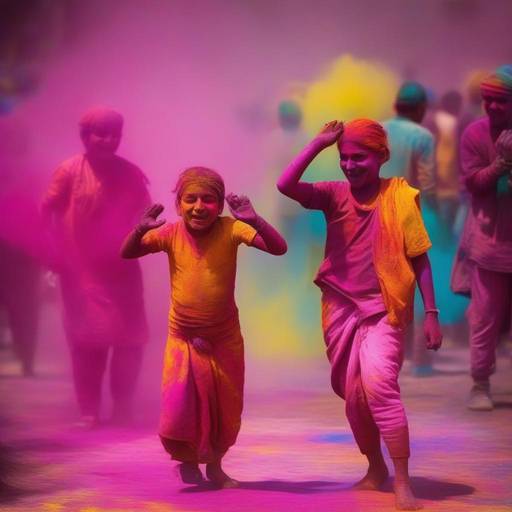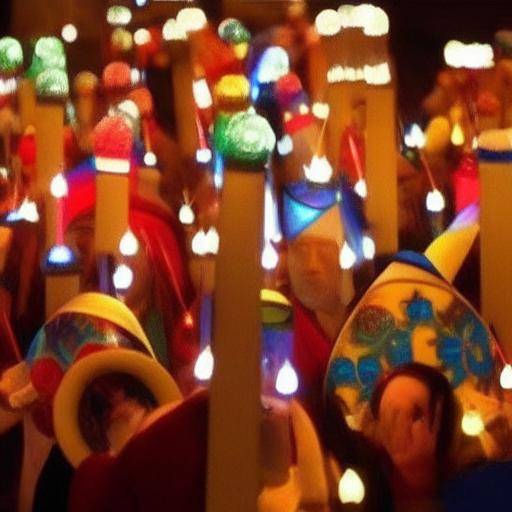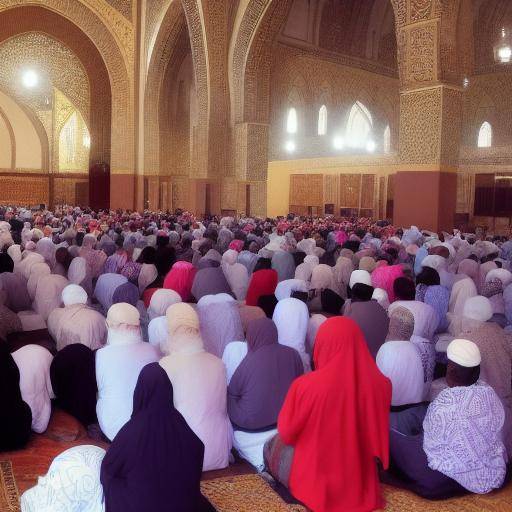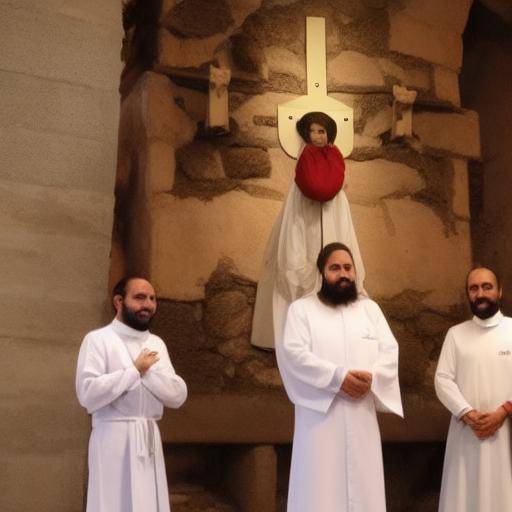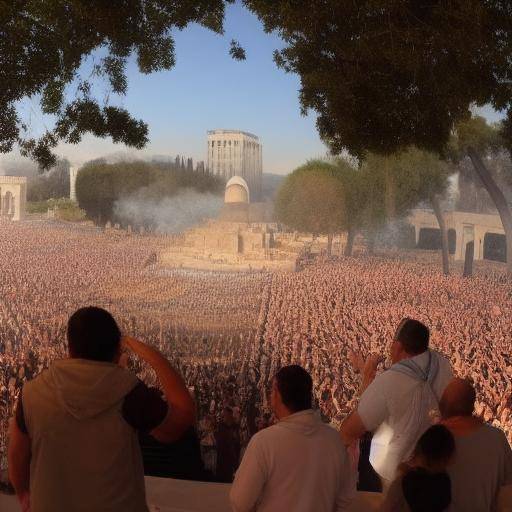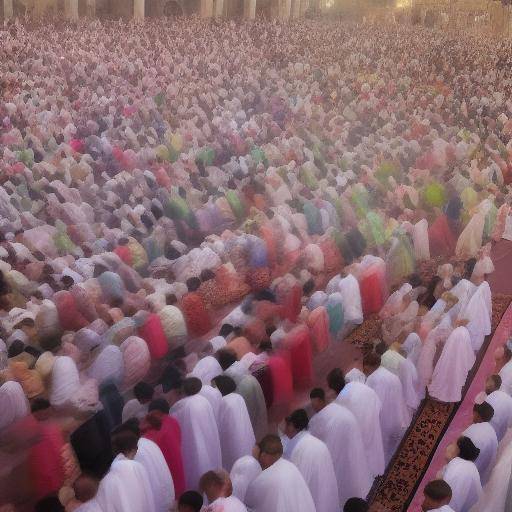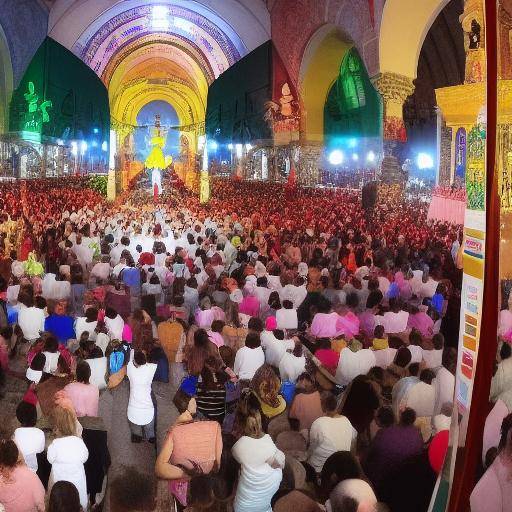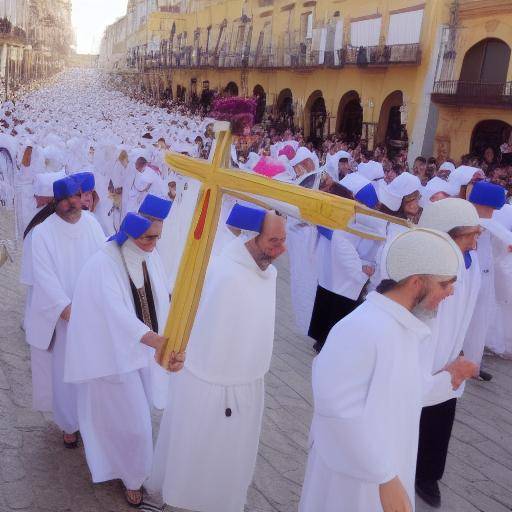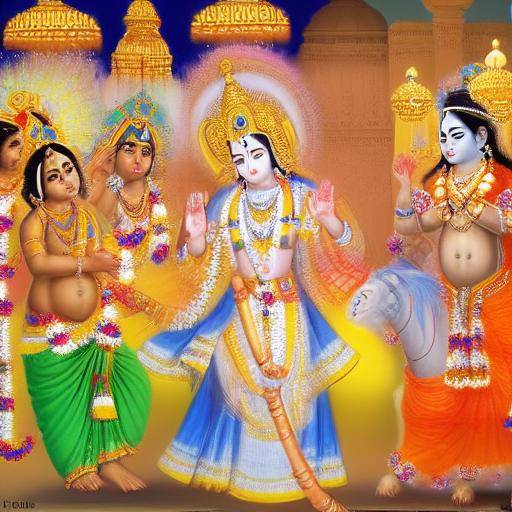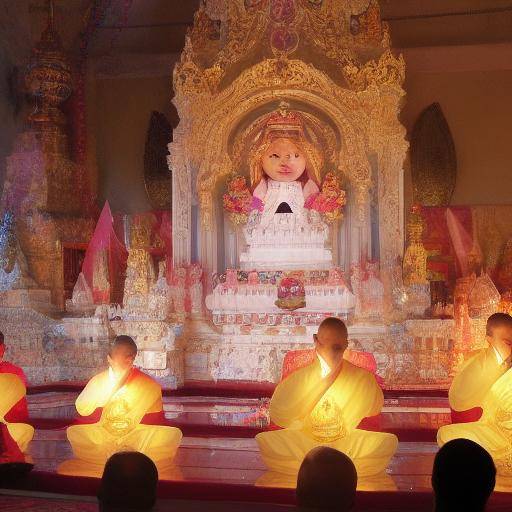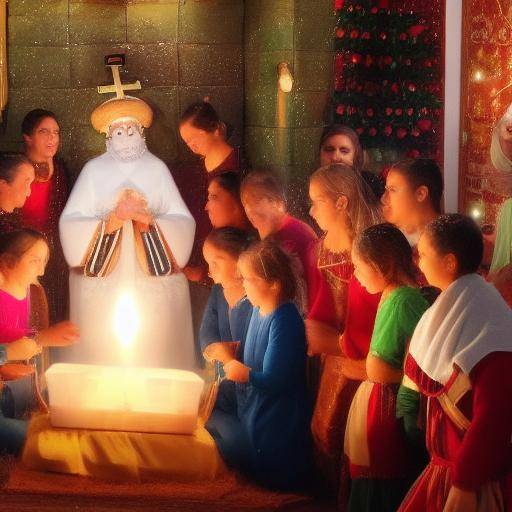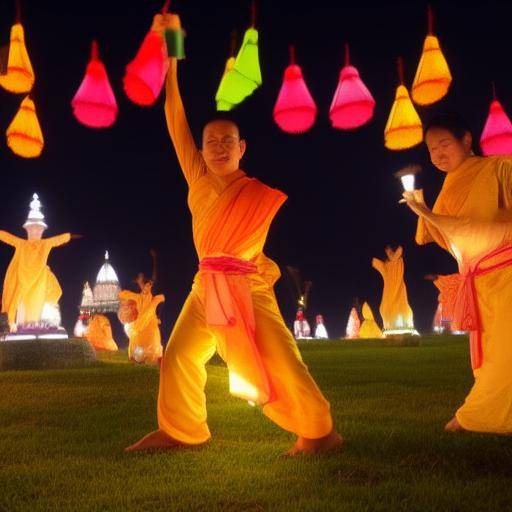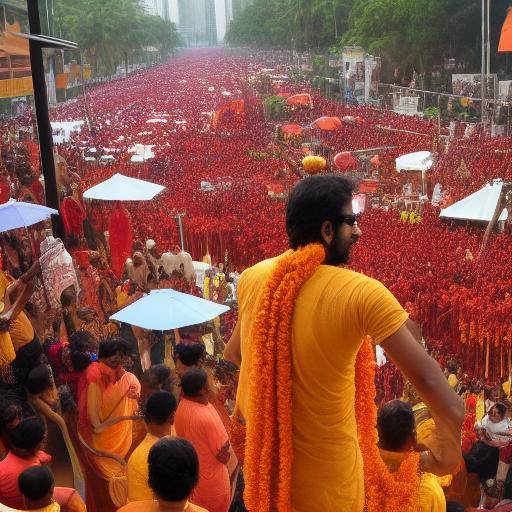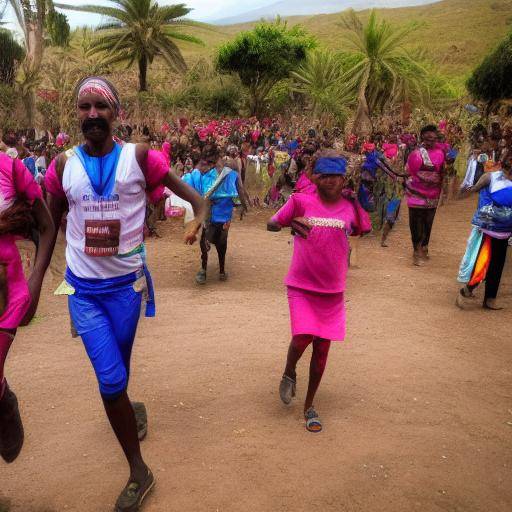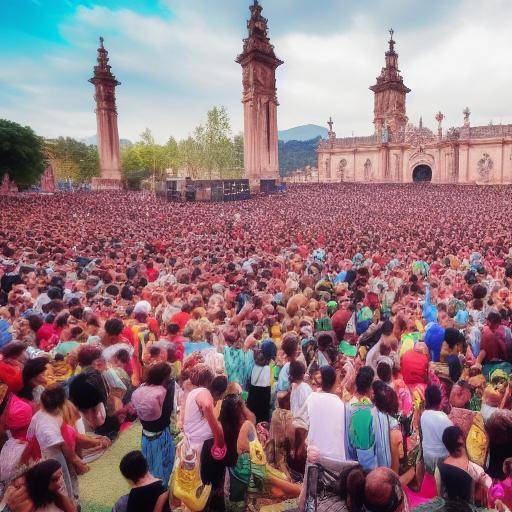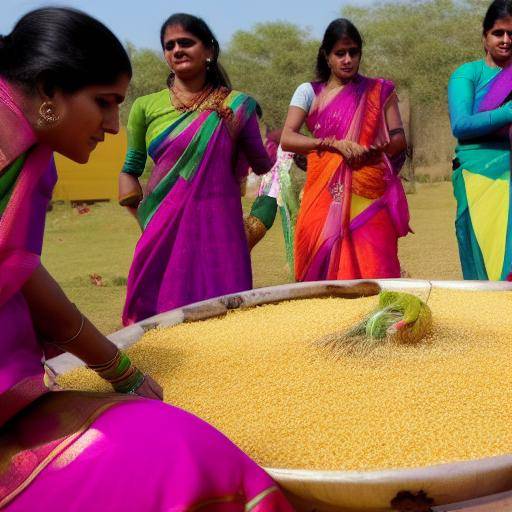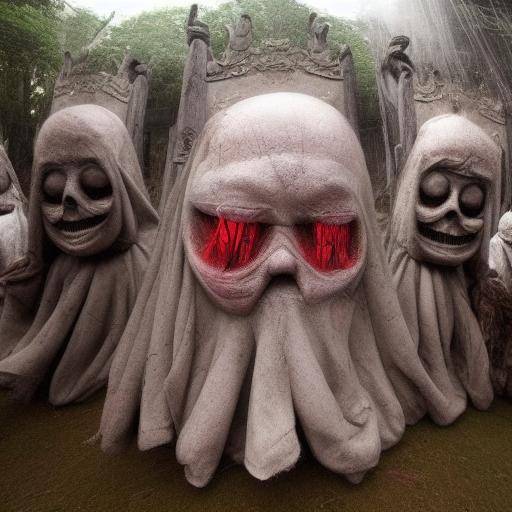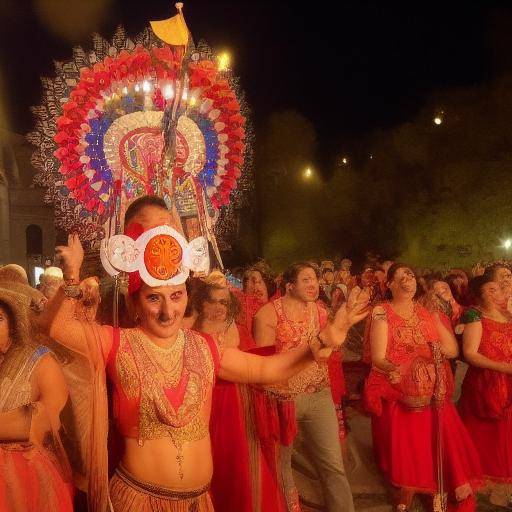
The Navaratri festival, an event of great importance in the Hindu religion, is known for its nine nights of celebration dedicated to the worship of the Goddess Shakti. This colorful festival, full of rituals and dances, is a manifestation of the rich cultural and spiritual tradition of Hinduism. In this article, we will explore in detail the history, meaning, practices and traditions associated with Navaratri, as well as their relationship with Hinduism and other religious festivals. We will also provide relevant information from experts, current trends, case studies and practical advice to better understand this sacred festival.
Introduction
The festival of Navaratri, which is celebrated in honor of the Goddess Shakti, marks the victory of good over evil and symbolizes spiritual renewal. During these nine nights and ten days, different forms of worship are performed, including traditional dances, religious rituals and fasting.
History and Background
Navaratri has its roots in Hindu mythology, where he tells the story of the battle between the Goddess Durga and the devil Mahishasura. The Goddess Durga, also known as Mahishasuramardini, defeated the devil after an intense struggle that lasted nine days and nights. This victory is commemorated by the celebration of Navaratri. During this period, it is considered that the Goddess Shakti, the female divine energy, is especially active and accessible for worship and spiritual search.
Deep analysis
The observance of Navaratri varies in different regions of India, reflecting the vast cultural diversity of the country. Puja (worship) is made daily, with offerings of flowers, incense and lamps. One of the most outstanding forms of celebration is the Garba, a circular dance traditionally performed in Gujarati. This dance represents the union of female cosmic energy with male energy.
In addition, Navaratri has a special meaning for practitioners of Indian classical dance, as it is considered a time conducive to initiating the teaching of this form of art.
Comprehensive review
The practice of fasting during Navaratri is common, including abstaining from certain foods and taking only specific foods that are considered pure. This practice also has nutritional and health implications, and for some, it is an opportunity to detoxify the body and mind.
The festival culminates with Dussehra, the tenth day, which commemorates the destruction of the Ravana demon at the hands of Lord Rama, another significant event in Hindu mythology.
Comparative analysis
The Navaratri festival shares similarities in its approach to the worship of a feminine deity with other religious festivals in different cultures, such as the feast of the Goddess of the Moon, in China, and the feast of the Goddess of the Earth, in Greece.
Practical Tips and Accessible Orientation
For those who wish to participate in the celebration of Navaratri, it is important to understand the spiritual meaning behind practices and rituals. Participate in the cultural experience of Garba dance, try the special food prepared during this period and visit Hindu temples are ways to immerse yourself in the celebration.
Industry Reflections and Expert Reviews
According to experts in comparative religion, Navaratri is an important celebration that highlights the importance of devotion and spiritual connection in daily life.
Case Studies and Applications in Real Life
A notable example of Navaratri's influence on modern culture is his integration into the entertainment industry, with massive Garba dance shows and concerts during the festival.
Future Trends and Predictions
The importance of the Navaratri festival and its relevance are expected to continue to grow worldwide, as the practice of yoga and Eastern spirituality gain more and more followers.
Conclusion
The Navaratri festival is a special event that goes beyond mere religious observance; it represents a deep connection with Hindu spirituality and culture. Through its rituals, practices and celebrations, Navaratri enriches the understanding of religious tradition and the importance of devotion. This holiday offers an opportunity to reflect on the presence of divinity in everyday life and strengthen community ties through shared celebration.
Frequently asked questions
What is the spiritual meaning of Navaratri?
Navaratri represents the worship of the Goddess Shakti, the female divine energy, and symbolizes spiritual renewal, the victory of good over evil and the search for truth.
What common practices take place during Navaratri?
During Navaratri, various rituals of worship, fasting, traditional dances such as the Garba and the observance of Dussehra are performed on the tenth day.
What is the cultural meaning of Navaratri in India?
Navaratri is not only a religious festival, but also plays an important role in the preservation and promotion of dance, music and other forms of cultural expression in India.
How is Navaratri celebrated outside India?
In different parts of the world, Hindu communities celebrate Navaratri through religious, cultural and entertainment activities, keeping tradition alive in their new locations.
How can I participate in Navaratri if I am not Hindu?
Navaratri is an inclusive festival that welcomes all participants, regardless of their religious origin. You could participate in public events, experience special food and learn about the cultural wealth it represents.
What is the role of Navaratri in modern spirituality?
Navaratri provides an opportunity to intertwine spirituality with modern life, fostering devotion, self-reflection and connection with the divine in the contemporary context.
With Navaratri, the festival of the Goddess, coming to an end, I hope that this article has provided a deeper understanding of the rich tradition of Hinduism and the celebration of Navaratri. May these nine nights of devotion continue to illuminate our hearts and minds on the path of spirituality.



